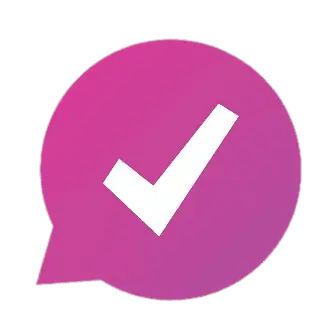Boost Your Grades with Our Communication Media Assignment Help
Are you trying to brush up on your communication media homework? Do you need communication media homework help with tight deadlines? We will assist you in handling the homework challenge and complex exams and beating the tight deadline. With us, you will learn necessary exams, homework, and test techniques to help you handle your coursework easily.
We understand that doing college work isn't easy for everyone, especially those students not equipped with grasping skills. So, look no further for communication assignment help; we got you. Place an order with us and get the necessary assistance.
Learn more about communication media, communication methods, course requirements, our communication media assignment help, benefits of the course, and frequently asked questions on the subject.
What is Communication Media?
Communication media refers to means of delivering and receiving data or information. Media describes the data path that forms the channel between the sender and receiver. Media can be telephone, coaxial, fiber-optic, and wireless which support light and radio waves. Wired media is also referred to as unbounded media, while wireless is unbounded.
Communication media uses verbal and non-verbal language in the communication process. So, there are two major types of communication media verbal and non-verbal.
What are the Major Methods of Communication or Communication Media?
Communication is essential in every organization involved, in a group of people, or even within yourself. So, communication can be interpersonal or intrapersonal. Interpersonal communication occurs between a group of people, while intrapersonal occurs within your mind.
People communicating in a group should understand each other's language for them to communicate. Their dialogue can be spontaneous, planned, or directed. As a result, there are four major forms of communication, and they include;
1. Verbal Communication
This type means all communication through spoken or unspoken words, in the case of sign language. Therefore, it's critical to understand how to communicate verbally effectively and avoid misunderstandings. Use the correct terminology, speak clearly, learn your audience, respond well, and use the right tone.
The same concept applies even in writing because one can learn your tone through reading. That's why it's best to write well to know your audience and explain your idea clearly, as explained in our book review writing service article.
Therefore verbal communication has two categories: oral and written communication. Examples of oral communication are; telephone, presentations, interviews, face-to-face conversations, and meetings. Check the details of the written communication below.
2. Non-verbal Communication
Non-verbal means tone, facial expressions, body language, hand movements, and eye contact. Your body language tells more than your words. You should be aware of your body language as you speak and always use the appropriate non-verbal cues to communicate effectively.
Examples of non-verbal cures are:
- Body language – posture, facial expressions, gestures
- Paralanguage – tone, pitch, volume, speed of speech
- Visual elements – clothing, appearance
3. Written Communication
Written communication is a form of verbal communication that differs from oral communication. Written communication can take any form, like letters, emails, notes, texts, billboards, reports, proposals, brochures, speeches, etc. This communication requires you to learn your audience and maintain consistency in your style and message.
Contact us if you require our mass communication assignment help in any of the areas above. Again, we also offer speech writing help at affordable rates.
4. Visual Communication
Visual type may feel a bit strange, but it's also essential. It involves delivering information or messages through graphical representations or visual aids. Some examples of this form are slide presentations, diagrams, physical models, drawings, and illustrations. This type requires you to use it with other verbal, non-verbal, or written forms to make it effective.
5. Artistic Communication
Examples of these communications are:
- Performing arts – theatre, film for storytelling and communication
- Music and dance – use of rhymes, melody, movement
- Fine arts – use of visual arts as means of expression like paintings, sculptures
6. Informal Communication
It occurs in social spaces without following any specific rules. Examples are:
- Casual conversations – all kinds of interactions in social gatherings
- Gossip and rumors – it's talking about the private or personal affairs of others or the exchange of inaccurate information.
7. Digital Communication
Examples are:
- Instant messaging – real-time communication in various platforms like Messenger or Slack.
- Websites – sites that publish journal articles or other content
- Social media – for sharing and interacting with content
What are the Types of Communication Media?
Communication media plays a role in disseminating information, ideas find information, and messages across individuals, groups, and societies. Check the common types of communication media below:
- Print Media - This media has been used for centuries and provides a tangible, portable format. It includes newspapers, magazines, books, brochures, and other printed materials.
- Digital Media - It's using digital technology to create, distribute, and consume content. Examples of digital media include blogs, podcasts, online videos, websites, and interactive media.
- Social Media - Social media branches from digital media and helps users to develop and share content on different platforms. Social media platforms include Twitter, Facebook, Instagram, LinkedIn, Podcast, YouTube, Pinterest, Quora, and more.
- Broadcast Media - This kind of media involves the transmission of audio and visual content to a mass audience. Broadcast media is used for educational purposes, news, and entertainment. These media include radio and television.
- Outdoor Media - This media is designed to reach a broad audience in high traffic. It includes billboards, posters, ads, and other materials displayed in public areas.
- Electronic Media - This form combines all media that use electronic technology for content creation and distribution. These media include:
- Television
- Radio
- Internet
- Video games
- Virtual and augmented reality
What are the Prerequisites for Communication Media Studies?
You are a good fit for the course if you possess the following skills
- Education background matters; for distance, in graduate studies, you should have a bachelor's degree in media, journalism, or a similar field
- Good command of English – you should have proficient written and verbal communication skills
- Critical thinking and analysis skills to help you analyze media content
- Research skills are necessary to source information, synthesize, and cite correctly
- Basic knowledge of media technologies like editing software, social media sites
- Have an interest in current affairs like the trending stories
- Writing or interview samples – some programs may require you to have work samples, especially for the graduate-level
- Passion for photography, film, storytelling, and digital media
Typical Coursework in Communication Media That You Should Expect
When you enroll in a communication media major or related courses, expect the following common courses. This list will help you review some of the courses before you join your program as a way of preparation.
- Introduction to film narrative
- Introduction to media and communication
- Writing for communication
- Research methods for communication – qualitative and quantitative
- Critical media literacy
- Media and communication techniques
- Public speaking and communication
- Participatory media culture
You can check some of Study.com and Saylor Academy courses and start learning before you join college. We will help you revise and get quality Saylor Academy answers and other courses.
How Will You Know You Are Fit for Communication Media Studies?
You are a good fit for the course if you possess the following skills
- Solid writing skills
- Communication skills
- Interpersonal skills
- Interests for news
- Passion for photography, film, storytelling, and digital media
- Networking
- Critical thinking
- Problem-solving
- Ability to express your ideas and thoughts
- Creativity
- Writing skills
- Interests in mass communication service
Which are the Areas that We Cover in Communication Media Assignments Help?
When you seek our communication homework help, you will access any of the following fields;
Journalism
Nowadays, journalism has evolved to reading news on your smartphone. In analog times, people could only access information through writing in newspapers. The specialists who gather, assess, create, and present news and information are journalists. If you study communication media, you can decide to specialize in journalism. You can consider other specific journalism courses under communication media, subjects like mass communication, multimedia, mass media, etc.
Broadcasting
Broadcasting helps media channels connect electronically to the masses through radio, television, or webcasting. Through broadcasting and media, people get to see and hear audio-visual content. In this broadcasting field, you can work on television or radio if you study journalism or mass communication. Also, with more specialization in the technical area, you can work with the production and camera team.
Public Relations
Communication media deals with various forms of communication in any organization. So, with the skills you gather in learning, you can easily handle the public relations sector. So, apart from news reporting, you should promote the brand image and uphold the organization's reputation. Public relations focus on maintaining a positive image between the general public and the media. Therefore, a public relations job is a good fit if you have a passion for communication.
Event management
Event management requires a plan to create and organize one. Significant events like political rallies or concerts require logistics and handling budgets and accounts. The aim of an event is usually to promote the brand and gather the right audience. So, this field gives you the skills to become an event planner. You can plan for events such as concerts, roadshows, weddings, and fashion events.
Advertising
Advertising is an art that goes along well with journalism. So, for art to stand out, it requires creativity and content that is eye-catching and interesting. Adverts are everywhere in the media, like television, radio, newspapers, billboards, the internet, etc.
Our communication media homework help services cover all the above areas. Don't shy away from seeking our communication assignment help. We have pocket-friendly services since we care for your academic needs. So, contact us today for affordable homework help.
Which Courses Do We Cover Under Our Media Assignment Help?
- COM 101 - Introduction to Communication
- COM 102 - Interpersonal Communication/Media and Society
- COM 103 - Introduction to Mass Communication
- COM 104 - Interpersonal Communication
- COM 105 - Media Writing
- COM 106 - Media Production Fundamentals
- COM 107 - Communication Theories
- COM 110 - Public Speaking
- COM 121 - Media Ethics
- COM 123 - Digital Media Skills
- COM 124 - Media Analysis
- COM 125 - Organizational Communication
- COM 127 - Media Law
- COM 150 - Introduction to Journalism
What are the Career Options for a Communications Media Major?
After studying the communication media major, you can pursue the following careers:
- Multimedia journalist – requires writing, video production, and photography skills
- Media educator/trainer – teaching, curriculum development
- Podcast producer – audio production, interviewing, storytelling, scripting
- Graphic designer – visual communication, creativity, proficiency in design software, graphic design
- Copywriter – advertising, branding, creative writing, and writing journal articles
- Media planner/ buyer – negotiation, strategic thinking, market research, data analysis
Which Courses Do Fall Under Our Mass Communication Assignment Help?
We offer communication media homework help for the following courses;
- BA in journalism and mass communication
- BA digital and mass media(broadcasting)
- BSc in mass media
- BSc in Media and communication
- Bachelor of Communication
- Bachelor of film, television, and animation
- Masters of communication
Which Skills Do You Acquire from Mass Communication Service?
Communication media studies will offer you the following skills;
- Specialty industry knowledge and experience
- Professional communication
- Creativity
- Flexibility
- Awareness in different cultural contexts
- General research skills
- Basic IT skills
- Self-management, like planning and meeting deadlines
- A good instinct for a captivating story, headline, or image
- Ability to predict upcoming trends and adapt to new technologies
- Media analysis – analyze media content like text, images, and audio-visual elements
- Digital literacy – utilization of digital platforms and tools for communication and content creation
- Problem-solving – ability to identify and solve challenges in creating and disseminating media content.
- Media ethics – considering issues related to privacy, accuracy, and reporting responsibly
- Social media management – skills to manage and leverage social media sites for marketing and interactions.
- Data analysis – learning to analyze and interpret relevant data in media research
- Interpersonal communication – ability to communicate effectively in various interpersonal environments.
What are the Benefits of Studying Communication Media Major
Taking the bold step of studying communication media studies at university comes with a lot of benefits;
- You get practical exposure and adventure - this course will help you travel to different places and explore the world from a new perspective of a filmmaker or journalist. Traveling gives you the freedom to be creative to your optimum level.
- Multiple career options - studying communication media helps you gain many skills you can apply in various fields. With excellent oral and writing skills, PR, and research, you can work in production houses, PR firms, Radio, Television, and research firms, and the list is endless. Therefore, learning multiple skills aims to help you go far in this field.
- Traveling opportunities - Learning in the classroom isn't a must in a communication media major. This department is always on the move to explore different places and learn new things. So, learning can occur anywhere in the field as you travel.
- Combined courses - the media field offers several dual degrees, meaning you can combine them with another program you wish to pursue.
- Networking opportunities - this field gives you the privilege to meet with famous personalities. Again, it focuses on social development, so you interact with different people and make new friends.
- Rewarding income - professional media jobs are among the highly rewarding opportunities. You can earn a hefty amount as you climb the ladder in your career.
- Power - you get to influence the community; as the saying goes, the pen is mightier than the sword. Also, with the growing popularity of the field, students are getting a great deal of job satisfaction and expression of creativity.
- Freedom of choice - unlike sitting down in other classes and doing an essay, you can choose the stories to research in this field and have a wide range of optional modules.
Why Do Students Ask for Communication Media Homework Help?
Students seek our mass communication assignment help due to
- Complex assignments that require a high level of creativity
- Long and urgent assignments
- Lack of time to handle the homework
- Lack of technical writing skills for essays, reports, thesis, and other academic papers
Which are the Real Life Applications of Communication Media?
Communication media knowledge has improved communication in many various aspects and ways. The knowledge acquired from this course can help in the following sectors:
- Television and radio broadcasting – these media broadcast news, educational shows, advertisements, and entertainment.
- Print media – to disseminate information, news, and marketing materials through newspapers, brochures, etc.
- Telephony – calls are used for personal communications, emergency services, and business interactions.
- Wireless communication helps transfer data between devices through Wi-Fi, Bluetooth, and NFC (Near Field Communication). NFC is applied in various roles, such as:
- Identification and smart cards, for instance, in scanning employee badges, passport chips
- Retail and royalty programs allow customers to earn rewards or discounts through a tap.
- In the gaming industry, where cards are tapped on the console to access the content
- Public transportation to allow contactless payment of fare and ticket validation
- Social media – offers various platforms like Facebook and Instagram to allow users to connect and share content such as news and other updates.
- Manufacturing sector – media plays a great role in industry automation, quality control, and supply chain management. For instance, through communication, employees can collaborate as a team in a conference in real-time. Media also improves training and skills development, enhances data security, and more.
- Education niche – media has facilitated virtual classrooms and online learning platforms for e-learning. Learners can also access more learning resources, boosting their research ability.
- Astronomy – scientists can now access advanced devices to help in their research. They also have efficient radio telescopes to receive and analyze information from space.
These are some of the applications of communication media in our world today. The list can be endless because communication is necessary for any sector, industry, or institution. So, ensure you work hard in your coursework and get the best opportunities in this sector. If you want to excel in this course, request communication media assignment help.
Which Communication Assignment Topics Will You Encounter?
We offer communication homework help for the following courses;
- Introduction to communication studies to give an overview of communication theories and models
- Media writing for news, journal articles, scripts, online content
- Media and society to evaluate the impacts of media on society
- Media research methods like interviews and content analysis
- Advertising and public relations
- Digital media technologies
- Media analytics and big data for research and decision-making
- Media law and policy
- Introduction to journalism
Frequently Asked Questions
1. Where Can I Get Communication Media Homework Help?
The homework market is the best place to seek communication homework help. Register on the platform request assignment help and get quality work that meets academic standards.
2. What are the Different Types of Mass Media Used for Communication?
There are several ways of communicating using different mass media, such as such;
- Television
- Radio
- The print industry
- Outdoor media
- Social media
- Journal article
3. Why Should I Study Media and Communication?
It has several benefits, such as:
- Enhanced personal skills
- Better career opportunities
- Understand communication dynamics
- Adaptability in the digital era
- Contribution to social growth through positive impact
4. How Can I Pass Communication Media?
- Taking lessons seriously to understand the content
- Forming and following a study method that works
- Stayed organized by tracking assignments, test deadlines
- Preparing well for our exams
- Real a lot of journal articles
- Read mass media and mass communication service articles
If you need more tips to pass your course, hire our tutors for communication media homework help.
5. What are the Four Major Communication Skills?
- Listening
- Speaking
- Reading
- Writing
6. How Can Communication Be Perfect?
If it incorporates the following 5cs:
- Correct
- Complete
- Concise
- Compassion
- Clear
7. What are the Advantages of Electronic Media?
- Offers official communication
- Accessible anytime
- offers interactivity
- They are dynamic and engaging
In a Nut-Shell
Communication media is a fascinating field for anyone. There is so much content to learn and explore in communication media, thus exciting. You can't go wrong by choosing this field if you have a passion for research, understanding and creating the news, filming, and production, and more so writing, creative, and critical thinking skills.
However, when it comes to assignments, things are very different and may get pretty challenging. You are required to apply the same creativity, writing, and communication skills in doing tasks. However some students fail to use these, and they end up struggling. Don't be among them; ask for help when stuck.
Our tutors will guide you stepwise until you learn how to handle all aspects of your homework. Again, we still help you hit the deadline if you don't have time for your tasks. Place an order with us today and enjoy our seamless communication media homework help.
 Trustpilot
Trustpilot
 Sitejabber
Sitejabber
 Reviews.io
Reviews.io
 ResellerRatings
ResellerRatings




















